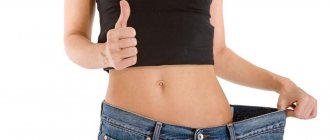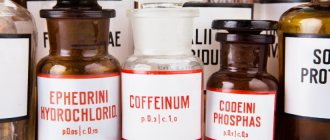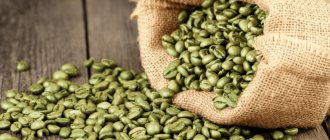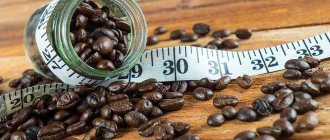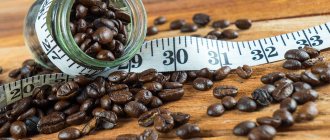What is caffeine?
Before we figure out the pros and cons of this substance, as well as the benefits of caffeine for a bodybuilder, let's figure out what it is in general.
At the end of the article, as always, I will describe to you my experience of taking caffeine (regular coffee and caffeine capsules), and also tell you where to buy it cheaper.
Caffeine is an alkaloid and a powerful CNS (central nervous system) stimulant. It can also be classified as a narcotic drug (it is addictive and requires an increase in dosage).
Caffeine is found in plants such as:
- Coffee.
- Tea.
- Mate (drink of the Guarani Indians).
- Guarane (evergreen creeping shrub from the Sapindaceae family).
- Kole.
- And many others.
Also, caffeine can be found in energy drinks, sports nutrition, almost all fat burners, and many pre-workout complexes.
Caffeine for weight loss. Effects for a bodybuilder
You and I, as people involved in sports, are interested in three main questions:
- How does caffeine help you lose weight?
- Is there any point in taking caffeine?
- And if it makes sense, then how much and how to take?
I think I'm right)
So, let's talk about the main effects of caffeine directly for a bodybuilder.
Most of the studies that have been conducted with caffeine have been aimed specifically at those sports that require a significant increase in endurance.
From this point of view, caffeine really helps to achieve more serious results.
First theory: fat-burning effect of caffeine
The very first and MOST BELIEVABLE theory is that caffeine promotes the production of ADRENALINE (the fear hormone), which accelerates the release of free fatty acids into the blood and is a stimulant of the central nervous system.
In an article about how to overcome fear, we looked at a very interesting ability of adrenaline, which was used by our ancestors tens of thousands of years ago.
I'm talking about the ability of adrenaline at the reflex level to force the human body (and not only) to mobilize all its energy reserves for instant decision making.
This is a reaction called "Fight or Flight!" This is what adrenaline can trigger.
Caffeine promotes the production of this same adrenaline.
Due to this, at the very beginning of our training, the muscles begin to “eat” or “burn” available fatty acids, while maintaining reserves of muscle glycogen (fast fuel, stored carbohydrates in the muscles and liver).
Scientific research has confirmed this theory.
Do you understand?
Those. THE MAIN FUEL for muscles (glycogen) is not yet consumed, but FATs are already burning. I think it's perfect. Due to this, endurance increases.
But, in fact, it is obvious that this effect is very beneficial for any athlete training with iron, and not just for a person seeking to increase his endurance.
You feel an energy boost at the very beginning of training, your performance is at a high level, and your glycogen “tanks” are still full, despite the fact that fats have already begun to burn.
- Those. we are not sluggish (the central nervous system is stimulated by caffeine) - this is the case.
- We burn fat reserves - that's two.
- And we have unspent glycogen for longer workouts.
How cool is that? Still would.
Very often they talk about the ability of coffee to suppress appetite. Research doesn't support this.
Fat burning is associated precisely with the processes of starting the production of adrenaline and starting the burning of fatty acids in the blood as a priority.
Second theory: caffeine directly affects muscles
This theory is that caffeine can directly affect skeletal muscles (the ones we pump), changing key systems that regulate the breakdown of carbohydrates inside cells.
That is, roughly speaking, scientists wanted to draw the conclusion that caffeine directly causes muscles to reduce glycogen consumption.
Many studies have been conducted, none of which have been completed, so no clear results have been obtained.
Third Theory: Caffeine Makes You Work Harder
The third, MOST COMMON and MOST PROVEN by scientific experiments theory of all.
Caffeine can make a person feel like they have done less work than they actually have.
This is explained by the fact that caffeine, due to its effect on the nervous system, can provide a psychological effect to athletes that they are not working as hard. Also, caffeine can enhance the strength of muscle contractions.
Oddly enough, caffeine is VERY SIMILAR to adenosine! Why strange?
Yes, because adenosine is an inhibitory type nucleoside neurotransmitter that plays a role in stimulating sleep and suppressing alertness, because its concentration increases during prolonged wakefulness of the body and decreases during subsequent sleep.
Those. Caffeine is a stimulant, but similar to adenosine, which promotes sleepiness. How so?
The fact is that caffeine does NOT have the same effect as adenosine, although it can interact with adenosine receptors on brain cells.
Instead, caffeine STIMULATES the production of adrenaline, a hormone that makes you feel better during exercise.
Other effects of caffeine
Here are other, no less interesting, effects of caffeine:
- Prevents Alzheimer's disease and dementia when consumed 3 to 5 cups per day (by preventing the formation of beta-amyloid plaques in the brain).
- Coffee lovers live longer (coffee helps slow down the process of brain destruction).
- Reduces the risk of developing breast cancer in women (Nutrigenet and Nutrigenomics Study 2015).
- Helps avoid systemic inflammation, heart and vascular diseases.
- Helps increase testosterone levels after training (by an average of 21%).
Negative effects of caffeine
Since caffeine is a central nervous system stimulant, one should not forget about the negative effects of caffeine on the body, especially if used improperly or in excess.
- May aggravate the ulcer.
- Worsening of the course of cardiovascular diseases.
- Increased blood pressure.
- Anemia (hypertension).
With these contraindications, it is better to stop drinking caffeine and try to improve athletic performance through training programs and nutrition.
Scientists have discovered how caffeine helps you lose weight
Four cups of coffee a day can help combat the effects of overeating during the holidays and prevent weight gain, according to researchers from the University of Illinois. The same effect can be achieved with mate tea. Scientists described the unexpected properties of caffeine in an article in the Journal of Functional Foods
.
According to WHO, about 13% of people on the planet are obese. Some of its main causes are poor diet and lack of physical activity. The long New Year's weekend invites you to relax at home in the company of high-calorie food, which can lead to excess weight gain.
Losing weight is often not difficult, but maintaining the results achieved is more difficult. Scientists previously noted that consumption of mate tea slows down the formation of adipose tissue, reduces the risk of developing insulin resistance, and improves fat metabolism in the body. However, the bioavailability of most of its components was not too high, with the exception of caffeine, which was absorbed almost completely.
Further analysis showed that caffeine consumption actually helps reduce fat mass. However, the exact mechanism of its operation, as well as the permissible dosages, were not completely clear.
To find out how caffeine affects fat storage, the researchers put rats on a harmful diet: for a month, their diet consisted of 40-45% carbohydrates, 15% protein, and the rest was fat.
The researchers also gave the rodents mate tea, synthetic caffeine, and caffeine isolated from coffee. Its amount was equivalent to what enters the human body with four cups of coffee. A cup of yerba mate contains 65-130 mg of caffeine, about the same as a cup of coffee, the researchers note.
Regardless of the source, caffeine was found to reduce fat storage in fat cells by 20-41% compared to a control group that did not receive it.
As a result, the rats that received caffeine gained 16% less weight and 22% less fat than those that were left without it.
“The results of this study can be translated into humans to evaluate the potential of using mate tea and caffeine to combat excess weight gain and obesity, as well as the development of disorders associated with these conditions,” said Dr. Elvira Gonzalez de Mejia, one of the study’s authors.
Researchers believe that caffeine may have affected certain genes associated with fat storage in the body. The Fasn gene is responsible for the formation of fatty acid synthases - enzymes that synthesize fatty acids, and the Lpl gene regulates the production of lipoprotein lipase, which plays an important role in the development of atherosclerosis.
In caffeine-treated rats, Fasn activity was lower by 31-39%, and Lpl activity was lower by 51-69%. Thus, their bodies processed fewer carbohydrates into fat and stored less fat.
Also, suppression of these genes led to less cholesterol production in the liver, the researchers note.
“Given the results, coffee and mate tea can be called anti-obesity drugs,” says de Mijia. “Consumption of caffeine from yerba mate tea or other sources reduced the negative effects of a high-fat, high-carbohydrate diet on body composition by regulating enzymes in adipose tissue and the liver.”
Coffee also reduces the risk of developing liver cancer
, British experts found out. For seven years they observed almost half a million volunteers. As it turned out, those who regularly drank coffee suffered from liver cancer 50% less often than those who preferred other drinks.
In addition, daily coffee consumption increases
improves brain performance, improves mood, improves memory. It is also useful to drink before sports training, as the invigorating effect increases endurance.
In addition, natural coffee without sugar can reduce the risk of developing Parkinson's disease, cancer and type 2 diabetes.
However, excessive coffee consumption increases blood pressure and cholesterol levels, and can also cause headaches, sleep problems and anxiety.
Caffeine with creatine: can I take it?
I have already talked about the interaction of these substances in an article about creatine monohydrate.
People very often hear the misconception that caffeine inhibits the action of creatine by destroying the latter's molecules.
But the interaction between creatine and caffeine is still debated. Many studies contradict each other.
If we analyze the collected scientific data, we can conclude that caffeine is indeed an antagonist of creatine, but their TOTAL EFFECT will be more positive than individually.
If it is very exaggerated, then you can take the effect of creatine = 2, the effect of caffeine = 2. Accordingly, caffeine + creatine = 3 (effect of caffeine = 2, effect of creatine = 1).
Conclusion: We will not get the same effect as we would like to expect by reducing the effectiveness of creatine, but the total effect will be greater.
How to take caffeine for weight loss and workouts?
The main rule: you need to take caffeine sodium benzoate before training. In order for the dietary supplement to be absorbed and begin to have an effect, it is better to take the tablets 30–60 minutes before the start of the training. There is no point in taking caffeine after a workout, since it does not directly affect muscle growth. The method of administration is extremely simple: 1-4 tablets of 200 mg each, washed down with any liquid. All tablets can be taken at one time, or they can be divided into several doses with a break of several minutes - there will be no difference for our body. One 200 mg tablet can be equivalent to 1-2 cups of strong coffee.
Dosage of caffeine in sports: for an adult, for a good effect, 3 to 6 mg of the substance per 1 kg of body weight is enough. However, the body gets used to coffee gradually, so you need to start the course with small doses. It is especially important to follow this prescription for athletes who rarely drank coffee before taking the supplement. You can start with small doses of 100–200 mg, gradually increasing the dosage of caffeine before training. In the same way - gradually - it is worth completing the course of treatment in order to avoid negative consequences. There cannot be a specific answer on how much caffeine to take at a time, since it depends on the individual characteristics of the body. A truly dangerous dose of caffeine for an adult is considered to be 10 grams (10,000 mg) per day: if its concentration in the blood reaches 15 mg per 1 liter, it can cause serious harm. For people with cardiovascular diseases, of course, a much smaller amount is enough to end up in the hospital, but when taking 2-3 caffeine tablets before training, there is no need to fear for your health.
Neither scientists nor manufacturers set strict caffeine intake periods: many people get it in huge doses from coffee throughout their lives. But taking caffeine non-stop is highly discouraged. After 2–3 months of regular use, dependence may develop: the previous dosages will no longer bring any positive effect, and the athlete will have to continue to increase them until symptoms of an overdose appear. If you take a break from caffeine for about 1–2 weeks every 2 months (after gradually reducing the daily dose), your performance will drop quite a bit, but this will keep your body healthy.
Where is there more caffeine: tea or coffee?
Let me list below the main caffeine-containing drinks and show the caffeine content in each:
- Black tea – 40 – 60 mg;
- Green tea – 75 mg;
- Freeze-dried coffee – 60 mg;
- Coffee brewed in a coffee maker – 60 – 120 mg;
- Red Bull, Burn – 100 mg;
- Coca-Cola – 40 mg;
- Dark chocolate (~50g) – 40 mg;
- Milk chocolate (~50g) – 12 mg.
Those. we need to understand what kind of tea and what kind of coffee we mean.
If you compare black tea and freeze-dried coffee, you may end up with roughly the same caffeine content per cup.
But if you compare the same black tea and coffee from a coffee maker, the caffeine content may differ in favor of coffee by almost two times.
Why does coffee make me sleepy?
There is a scientific explanation for this.
- The most unpleasant thing that can happen is a problem with the adrenal glands. If such a symptom occurs regularly after drinking coffee, then you should consult a doctor.
- This can happen if you drink several cups of coffee one after another, after a short period of time. There may be spasms or constriction of blood vessels in the brain, which will make you want to sleep. It is worth thinking about the amount of coffee you drink.
- One of the latest studies confirms that if you feel sleepy after drinking coffee, this may indicate the presence of the Einstein-Barr virus in the body. This virus adversely affects the nervous system and promotes the formation of cancer cells. Maybe the name of the virus makes you smile, but it has been established that 50% of people on Earth carry this virus in their blood.
- Drowsiness after coffee may indicate problems with the pancreas. In this case, enzymes poorly digest substances entering the body, caffeine is not completely filtered out, and the lion's share of it ends up in the brain.
- The last and most common reason is that caffeine affects the central nervous system differently among people. Nerve cells in the brain can not only be stimulated by caffeine, but also inhibited. In most cases, this is a sign of caffeine overdose and overstimulation, and, as a result, triggers a defense mechanism that causes drowsiness.
My experience with caffeine
To be honest, I’m still a coffee lover.
I fucking love coffee, in all its forms. And the very smell of coffee gives me a feeling of such homely warmth and comfort.
This is probably due to the fact that when I visit my parents in my hometown, my mother, who always gets up early in the morning, makes coffee in a Turk.
The aroma spreads throughout the house! After that I wake up. Such a warm feeling, even now. I want coffee made by my mother)
And after a trip with my Ksyushka to Thailand, I also fell in love with iced coffee - Frappuccino! If you haven't tried it, I highly recommend it! You're lucky if there's a Starbucks in your city) I'm jealous)
So here it is.
Usually, I drink 1-2 cups a day. I don’t allow myself more, despite the fact that I bought a coffee machine for home - my very old dream) Another confirmation that dreams come true!
So, I try not to drink more than 1-2 cups of coffee a day.
During cutting, when the low-carb diet is completely annoying, I buy a jar of caffeine to feel good:
I literally take one tablet (200 mg) 30-60 minutes before training once a day and feel better during training.
I think it’s stupid to describe the sensations of taking caffeine, but let’s stick to tradition and tell you exactly my experience:
- Mental focus is MUCH BETTER. Even after work, concentration on training is higher.
- Endurance improves. It takes much longer to do cardio, and the intensity of the exercise increases.
- The head becomes light. I don’t know how to describe it, but you start thinking from scratch. It helps a lot after work.
- Separately, I would like to highlight strength in training. It becomes 5-15% higher on average. Depending on the condition and recovery the day before. If you go to the gym on a day off, having slept, rested, eaten, then your strength will increase on average to 5%, if after work, then by 10-15% of the possible (since initially you are more tired).
I bought this caffeine at the cheapest price using this link.
1 cup of coffee (237 ml) contains approximately 100 mg of caffeine. The recommended dose to achieve an effect during training is 3-6 mg per 1 kg of body weight.
Let me explain, for example, if you weigh an average of 70 kg, then 200-210 mg of caffeine before training will give you the desired effect.
What about dehydration during training from caffeine?
A 1977 study in the United States in Ohio confirmed that caffeine does not contribute to dehydration during training.
They took six cyclists and forced them to pedal for 3 hours each. There were no differences in performance or urine output during exercise.
How to take caffeine for weight loss
The maximum permissible daily dose of caffeine is 500 mg, per dose - 300 mg. The indicated amount includes caffeine contained in coffee, tea, chocolate, and Coca-Cola. When taking caffeine tablets, you should reduce or avoid all foods and drinks containing this substance.
The tablets are taken half an hour before training (you are allowed to eat no later than an hour and a half before training). The initial dose is 2 mg per kilogram of body weight (100 mg per 50 kg). If after 1–2 weeks no deterioration in health is observed, the dose is gradually increased to 100 mg per 30 kg of weight (but not more than 300 mg of caffeine per dose). The half-life of the drug is 4–5 hours.
When taking caffeine, you need to drink at least 2–2.5 liters of water per day.
In case of overdose, the substance can cause:
- arrhythmia, muscle cramps;
- chills;
- headaches and stomach pains;
- dehydration due to frequent urination;
- increased anxiety;
- confusion;
- nausea and vomiting, in severe cases - with blood.
